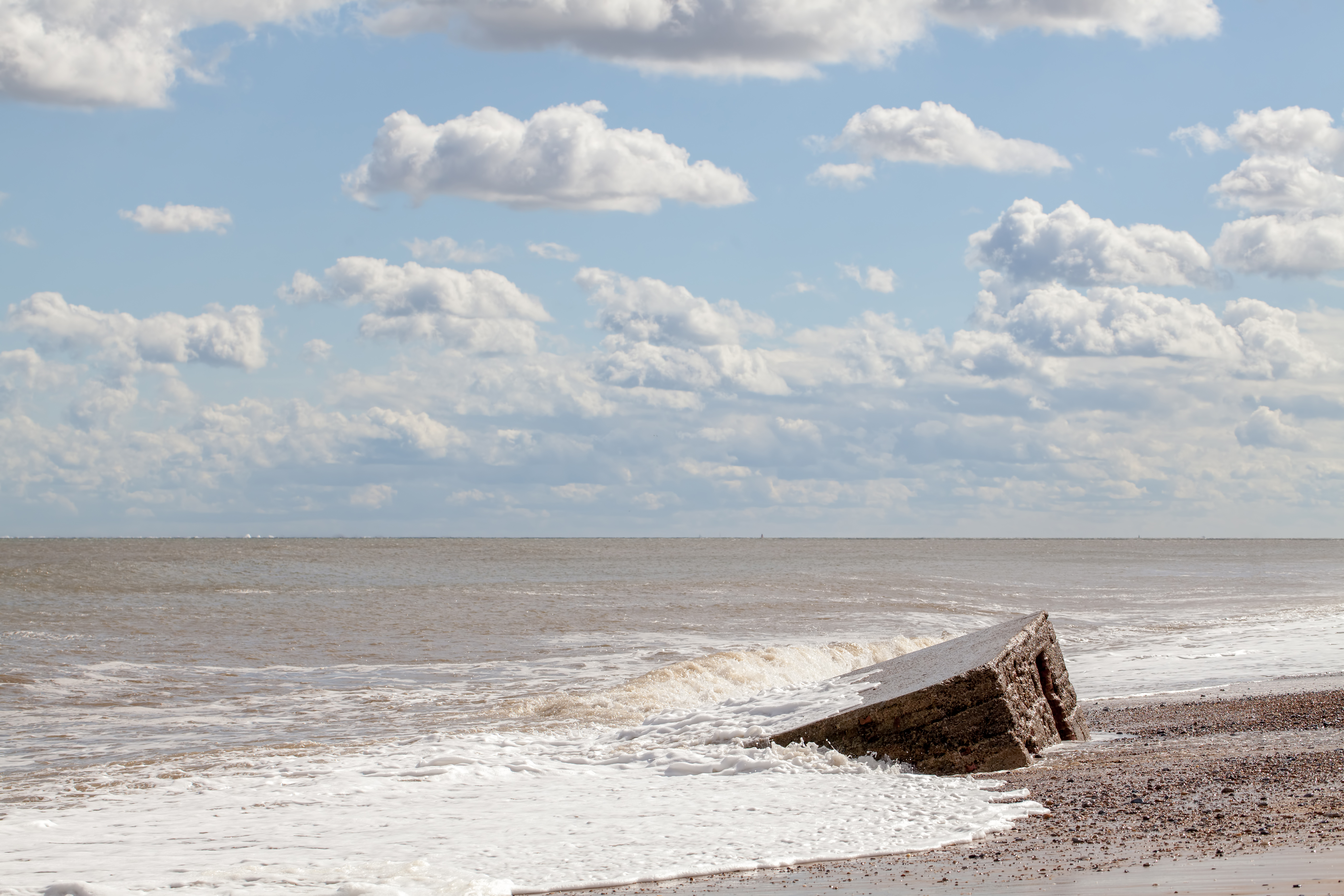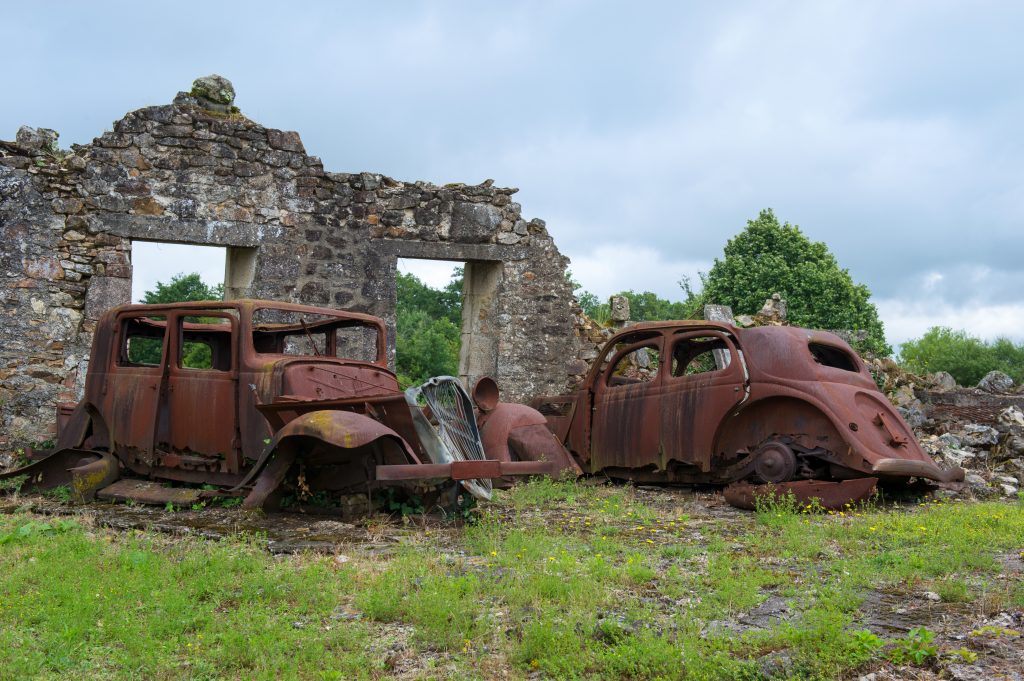France’s Second National Anthem: Le Chant des partisans

The story behind Le Chant des partisans is a simple one. In 1943 singer Anna Marly adapted a Russian marching song that had inspired her, Joseph Kessel and Maurice Drouon wrote the lyrics, it was broadcast on the BBC, and was then adopted by the French Resistance. There is a more detailed account of how all those things happened to come together, but the matters of most importance are the glorious song and the many who sang it.
The following version provides the words in English, and is sung by Mireille Mathieu:
Here is a version by the great Johnny Hallyday, who died in December 2017. (See the recent column by Pamela Druckerman, The New York Times.)
In late August 1939, Germany and the USSR signed a pact negotiated in haste. The blitzkrieg in Poland began in September, 1939, and France and Britain declared war. Nothing much happened for months during the period of the phony war, or the drôle de guerre. The German invasion of Norway in April, 1940, led to the resignation of Neville Chamberlain and his replacement by Winston Churchill. On May 10, the battle in the west began in earnest. The German air force flattened Rotterdam; after a five day battle, the German army took Sedan and was on French soil, bypassing the costly folly, the Maginot Line. At Dunkirk, approximately 140,000 French and Belgian troops were among those evacuated from May 26 to June 4, 1940.
The “exodus” of refugees from Belgium and Holland that began pouring into northern France, and of the French also fleeing south (International Herald Tribune, June 11, 1940), encompassed several millions of people. They walked, rode bicycles, looked for nonexistent public transport, and abandoned their cars along the roads as they ran out of gas. The government of France moved to Bordeaux, declaring Paris an open city; the German army occupied the capital on June 14. Marshal Henri Philippe Pétain, the deputy premier, was appointed as premier.
For Pétain, born in 1856, fame as the leader of the defense of Verdun (“They shall not pass,” 1917) came late in life. He was lionized, virtually the only general in World War I who was regarded as a hero. He remained on the scene throughout the interwar years and when he became premier, in the emergency circumstances of the time, he was already well into his eighties.
On June 16 he gave a brief radio address to the French people (English subtitles are available by clicking on cc.).
One can understand why people heard Pétain’s message with relief. He was the new head of government, but he was also an admired hero from the previous war. He said it was over, that the best they could do was to cease fighting; he explicitly referenced the terrible plight of the refugees; he stepped up once again to serve. The chaos of the exodus, military defeat, fear, the meaning of a blitzkrieg against French soil–all of that must have made Pétain’s message seem more sensible at the time than the message of Resistance. No one yet realized that the terrible costs of collaboration would be too high.
Charles de Gaulle: born in 1890, education at the military academy Saint-Cyr, distinguished service (in part under Général Pétain) during World War I, author of, among other works, The Army of the Future (1934) that proposed a new vision of fast, mobile warfare in opposition to the defensive mentality that seemed to grip the high command, and promotion to brigadier general only in early 1940, when he commanded a tank brigade. Though his reputation was to come mostly in the realm of politics and diplomacy, he was also skilled in his profession, becoming one of the few generals to win against a German force during the short Battle of France. In June 1940, the Premier Paul Reynaud (soon to be replaced by Pétain), made de Gaulle deputy minister of war, which meant that he was a part of some of the last desperate talks with Churchill and the British government.
Still, no one knew who he was. His historic “flame of resistance” speech of June 18 on the BBC was not recorded and was heard by very few–hardly surprising, given the circumstances at the time. His next speech, on June 22, after the terms of the armistice were known, outlined his essential message, which never changed. Honor. Empire. Strategic global vision.
It should be noted, as well, that De Gaulle did not merely give speeches: he organized his forces, fiercely bargained with his fellow Allied leaders (Churchill and Roosevelt, who both disliked him) on behalf of French interests, won over the colonies, whose colonial recruits fought as part of the Free France forces, imposed a provisional French government as the nation was liberated after D-Day, and dragged France, with sheer force of will and personality, into the winners’ circle; France, with the United States, Great Britain, and the Soviet Union, was one of the four occupying powers of Germany. Here is the moment when he disobeyed orders and stepped into history:
In August, de Gaulle was sentenced to death in absentia.
De Gaulle accomplishes much in this speech. France had lost the battle of France, but not the war. If Poland, Holland, the the others could continue the fight in exile, then so could France. The losses stemmed not from French inherent weakness but from the mistakes, both strategic and tactical, of the high command. Those who surrendered were taking a short view. The United States would enter the war, and Germany might well lose some or all of her allies (as she later lost the USSR). The victory of free countries was inevitable, and France would need to be on the winning side. Above all, perhaps, it was dishonorable to make a separate peace when France had promised not to do so.
It is also clear that de Gaulle envisioned a resistance in the form of a Free France army rather than partisan fighters. He had both. The Free France, or Fighting France, forces eventually numbered 300,000 regular troops, including colonial indigènes, especially from Algeria and Morocco, using British equipment and then American Lend-Lease. They fought in North Africa and the Middle East, were decisive at Monte Cassino, and helped to liberate France; in the spring they took part in the invasion of Germany.
De Gaulle did not quite expect an underground civilian resistance movement, but nevertheless worked with it through the Conseil National de la Résistance (CNR), set up by Jean Moulin. Moulin, who had been sent by Charles de Gaulle to unify the various groups in France, was arrested in June 1943 and tortured under the orders of Klaus Barbie. He was sent east, and apparently died on the train.
De Gaulle had to walk a difficult line, both keeping the FFI (French Forces of the Interior) motivated, and restraining them from isolated acts of resistance that brought fearful reprisals. The massacre and burning of 642 inhabitants of Oradour-sur-Glane on June 10, 1944–note the date–was in return for an attack on a German officer. The destroyed village has been left as a memorial.

At de Gaulle’s insistence, it was a French armored division under General Philippe Leclerc [de Hauteclocque] that became the first allied force into Paris in August, 1944; De Gaulle walked through the streets on August 26. This American newsreel, narrated by Lowell Thomas, captures the joy of the moment.
In the aftermath of World War II, the people of France did not care to dwell on the Occupation. The pains of war were masked by pride in the Resistance, and accompanied by a good deal of forgetting. (See March post, “The Sorrow and the Pity, Part I.”) There were calls for Le Chant des partisans to become the new anthem, though the Marseillaise is too intertwined in the Great Revolution ever to be replaced; but they continued to sing it.
In the late twentieth century, this heroic story became seriously complicated by historical revelations, by the “discovery” of collaborators who had lived prosperous lives in plain sight (Maurice Papon, de Gaulle’s Prefect of Police, René Bousquet, who supervised the Vel d’hiv mass arrest of Jews in Paris in 1942), and by a questioning even of the effectiveness of the Resistance in helping to liberate France. (This post in commemoration of D-Day, as one will have noted, is not about any of the complications, but rather about the simple heroic story; which is also true.)
In 2007, newly elected President Nicolas Sarkozy decided that France had been trapped in the guilt-ridden “politics of memory” for too long, and believed that school children needed to be taught about the heroics and martyrdom of the resisters (see Nathan Bracher, below.) He deliberately staged a performance of Le Chant de Partisans:
The day after his election in 2017, new President-elect Macron, along with President François Hollande, listened to the song at the Arc de Triomphe:
In memory of those who were present at D-Day, June 6, 1944.
Work cited: Bracher, Nathan. “Bruckner and the Politics of Memory: Repentance and Resistance in Contemporary France.” South Central Review 24, no. 2 (2007): 54-70. http://www.jstor.org.exlibris.colgate.edu:2048/stable/40039981.
==================================
Header Image of Normandy Beach and discarded makeshift port, from the landing. From Dreamstime.com